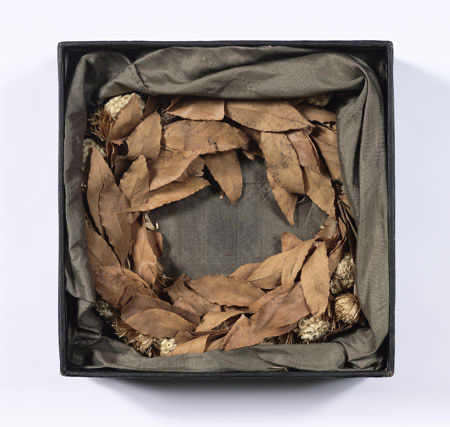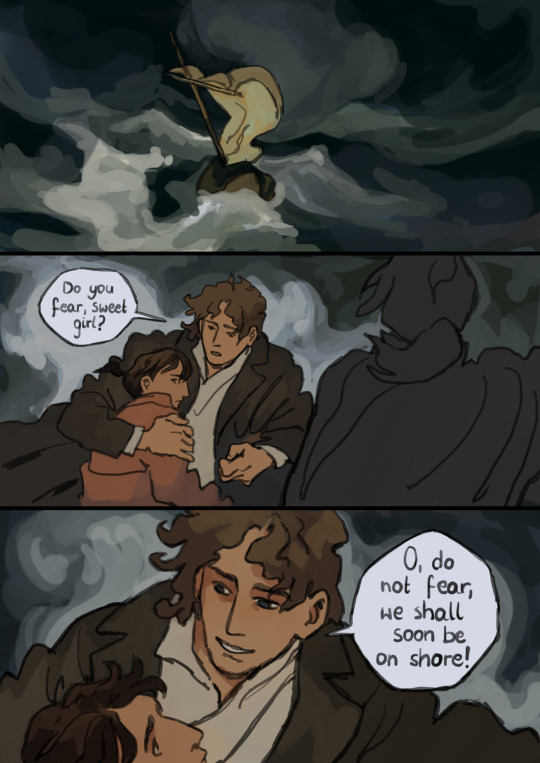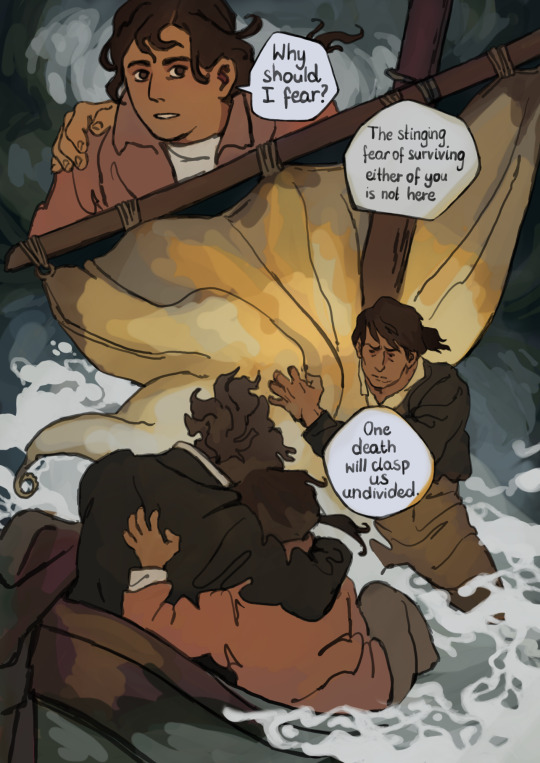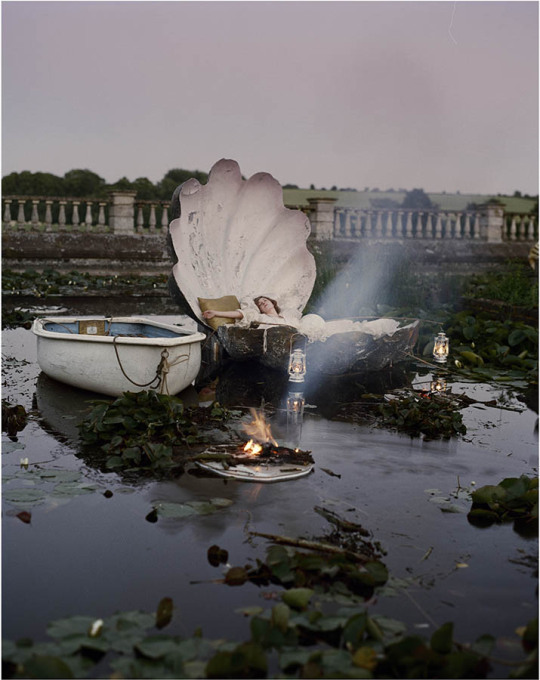Text
"June 19th. 1823
The dead have been awakened — shall I sleep?
The World’s at war with tyrants — shall I crouch?
The harvest’s ripe — and shall I pause to reap?
I slumber not; the thorn is in my Couch.
Each day a trumpet soundeth in mine ear —
It's Echo in my heart —"
— entry from Byron's last known diary, known as the Journal of Cephalonia.
"Byron's end in Greece was wretched, crucified between his ideals and the reality: but it put the seal on his reputation."
— excerpt from Peter Cochran's "Byron's Writings in Greece, 1823-4."
a post in honor of lord byron's 200th death anniversary —
the greeks were very fond of byron, who when he died in 1824 was a military commander and notable influence in their war of independence. as one of the most (if not the most) famous members of the philhellenist movement, byron used his poetic platform to try to remind people of greece's reputation as the source of western traditions in art and culture. the greeks then honored byron by decorating his coffin with a laurel wreath (below). they also erected statues for him, like this one below in athens depicting him being crowned with a laurel wreath (a symbol of greatness, especially in poetry/music [which historically overlapped]) by a female personification of greece. to this day, some statues of byron are annually wreathed in tradition, and the names byron/vyron/vyronas are still used in greece for roads, towns, and people in his honor.


"’Tis sweet to win, no matter how, one’s laurels,
By blood or ink; ’tis sweet to put an end
To strife; ’tis sometimes sweet to have our quarrels,
Particularly with a tiresome friend:
Sweet is old wine in bottles, ale in barrels;
Dear is the helpless creature we defend
Against the world; and dear the schoolboy spot
We ne’er forget, though there we are forgot.
But sweeter still than this, than these, than all,
Is first and passionate love — it stands alone,
Like Adam’s recollection of his fall;
The tree of knowledge has been pluck’d — all ’s known —
And life yields nothing further to recall
Worthy of this ambrosial sin, so shown,
No doubt in fable, as the unforgiven
Fire which Prometheus filch’d for us from heaven."
— excerpt from Lord Byron's Don Juan, Canto the First (writ 1818, pub. 1819).
"The mountains look on Marathon –
And Marathon looks on the sea;
And musing there an hour alone,
I dreamed that Greece might still be free;
For standing on the Persians' grave,
I could not deem myself a slave."
— excerpt from Lord Byron's Don Juan, Canto the Third (writ 1819, pub 1821) — this stanza is part of a section often published on its own under the title "The Isles of Greece."
"Byron was at once a romantic dreamer, who wanted life to square up to his illusions, and a satirical realist, who saw what was before him with unusual clarity and found its contradictoriness amusing. The clash between the two Byrons is nowhere more noticeable than in his last writings, done on Cephalonia and at Missolonghi during the months before his death. There we see the Greece he dreams of, and the Greece which, in different ways, destroys him."
— excerpt from Peter Cochran's "Byron's Writings in Greece, 1823-4."
"Oh, talk not to me of a name great in story;
The days of our youth are the days of our glory;
And the myrtle and ivy of sweet two and twenty
Are worth all your laurels, though ever so plenty.
What are garlands and crowns to the brow that is wrinkled?
'Tis but as a dead-flower with May-dew besprinkled.
Then away with all such from the head that is hoary!
What care I for the wreaths that can only give glory!
Oh FAME! - if I e'er took delight in thy praises,
'Twas less for the sake of thy high-sounding phrases,
Than to see the bright eyes of the dear one discover,
She thought that I was not unworthy to love her.
There chiefly I sought thee, there only I found thee;
Her glance was the best of the rays that surround thee;
When it sparkled o'er aught that was bright in my story,
I knew it was love, and I felt it was glory."
— Lord Byron's "Stanzas Written on the Road Between Florence and Pisa" (November, 1821). What is illustrated here, and what I try to illustrate all throughout this assortment, is Byron's conflation of love and glory, and the idea that poetry and politics are both ways to deserve and achieve — not fame, but what fame seems to promise — love.
"But 'tis not thus—and 'tis not here
Such thoughts should shake my Soul, nor now,
Where Glory decks the hero's bier,
Or binds his brow.
The Sword, the Banner, and the Field,
Glory and Greece around us see!
The Spartan borne upon his shield
Was not more free.
Awake (not Greece—she is awake!)
Awake, my Spirit! Think through whom
Thy life-blood tracks its parent lake
And then strike home!"
— excerpt from Lord Byron's "On This Day I Complete My Thirty-Sxith Year" (1824).
"What are to me those honours and renown
Past or to come, a new-born people's cry
Albeit for such I could despise a crown
Of aught save Laurel, or for such could die;
I am the fool of passion, and a frown
Of thine to me is as an Adder's eye
To the poor bird whose pinion fluttering down
Wafts unto death the breast it bore so high –
Such is this maddening fascination grown –
So strong thy Magic - or so weak am I."
— although the much more popular and published "On This Day I Complete My Thirty-Sxith Year" is often believed to be Byron's last poem, the above is likely Byron's actual last poem. Like the former, it wasn't solely written for Greece, but for his page Lukas Chalandritsanos who he was in unrequited love (or lust) with. It is sometimes titled "Last Words on Greece" (named so by his friend and sometimes-editor Hobhouse).
#lord byron#greece#byron#byronism#byronist#peter cochran#quotes#poetry#greek war of independence#greek revolution
42 notes
·
View notes
Text


Based on Mary Shelley’s post apocalyptic novel The Last Man. It’s very interesting, before I’ve read it I’ve seen it described as Mary’s expression of loneliness after most of her friends and family passed away, but interestingly, up until the last chapter the novel is filled with the feeling of community and affection. I liked it very much.
1K notes
·
View notes
Text






keats + terms of endearment for fanny
474 notes
·
View notes
Text
"Requite affection with scorn; — let one being be selected, for whatever cause, as the refuse of his kind — divide him, a social being, from society, and you impose upon him the irresistible obligations — malevolence and selfishness. It is thus that, too often in society, those who are best qualified to be its benefactors and its ornaments, are branded by some accident with scorn, and changed, by neglect and solitude of heart, into a scourge and a curse."
". . . his original goodness was gradually turned into the fuel of an inextinguishable misanthropy and revenge."
Read his full essay here!
“Treat a person ill, and he will become wicked.”
— Percy Bysshe Shelley , on Mary Shelley’s Frankenstein—or the Modern Prometheus
#mary shelley#percy bysshe shelley#percy shelley#frankenstein#frankenstein or the modern prometheus#book review#human nature#philosophy#quotes#bullying#misanthropy#neglect#trauma#analysis#literature#english literature
189 notes
·
View notes
Text
Lord Byron’s journal entry for April 19th 1814. He expresses his depression after the Bourbon Restoration:
"April 19. 1814.
There is ice at both poles, north and south — all extremes are the same — misery belongs to the highest and the lowest only, — to the emperor and the beggar, when unsixpenced and unthroned. There is, to be sure, a damned insipid medium — an equinoctial line — no one knows where, except upon maps and measurement.
‘And all our yesterdays have lighted fools
The way to dusty death.'*
I will keep no further journal of that same hesternal torch-light; and, to prevent me from returning, like a dog, to the vomit of memory, I tear out the remaining leaves of this volume, and write, in Ipecacuanha, — ‘that the Bourbons are restored!!!' — 'Hang up philosophy.'** To be sure, I have long despised myself and man, but I never spat in the face of my species before — 'O fool! I shall go mad.'***”
* Macbeth ** Romeo and Juliet *** King Lear
#anti monarchy#lord byron#literature#english literature#dark academia#aesthetic#poetry#romanticism#history#writing#bourbon restoration#bourbon#france#napoleon bonaparte#napoleon#regency#1800s#19th century#shakespeare#diaries#journals#macbeth#romeo and juliet#king lear
22 notes
·
View notes
Text
a post in honor of lord byron's 200th death anniversary —
the greeks were very fond of byron, who when he died in 1824 was a military commander and notable influence in their war of independence. as one of the most (if not the most) famous members of the philhellenist movement, byron used his poetic platform to try to remind people of greece's reputation as the source of western traditions in art and culture. the greeks then honored byron by decorating his coffin with a laurel wreath (below). they also erected statues for him, like this one below in athens depicting him being crowned with a laurel wreath (a symbol of greatness, especially in poetry/music [which historically overlapped]) by a female personification of greece. to this day, some statues of byron are annually wreathed in tradition, and the names byron/vyron/vyronas are still used in greece for roads, towns, and people in his honor.


"’Tis sweet to win, no matter how, one’s laurels,
By blood or ink; ’tis sweet to put an end
To strife; ’tis sometimes sweet to have our quarrels,
Particularly with a tiresome friend:
Sweet is old wine in bottles, ale in barrels;
Dear is the helpless creature we defend
Against the world; and dear the schoolboy spot
We ne’er forget, though there we are forgot.
But sweeter still than this, than these, than all,
Is first and passionate love — it stands alone,
Like Adam’s recollection of his fall;
The tree of knowledge has been pluck’d — all ’s known —
And life yields nothing further to recall
Worthy of this ambrosial sin, so shown,
No doubt in fable, as the unforgiven
Fire which Prometheus filch’d for us from heaven."
— excerpt from Lord Byron's Don Juan, Canto the First (writ 1818, pub. 1819).
"The mountains look on Marathon –
And Marathon looks on the sea;
And musing there an hour alone,
I dreamed that Greece might still be free;
For standing on the Persians' grave,
I could not deem myself a slave."
— excerpt from Lord Byron's Don Juan, Canto the Third (writ 1819, pub 1821) — this stanza is part of a section often published on its own under the title "The Isles of Greece."
"Byron was at once a romantic dreamer, who wanted life to square up to his illusions, and a satirical realist, who saw what was before him with unusual clarity and found its contradictoriness amusing. The clash between the two Byrons is nowhere more noticeable than in his last writings, done on Cephalonia and at Missolonghi during the months before his death. There we see the Greece he dreams of, and the Greece which, in different ways, destroys him."
— excerpt from Peter Cochran's "Byron's Writings in Greece, 1823-4."
"Oh, talk not to me of a name great in story;
The days of our youth are the days of our glory;
And the myrtle and ivy of sweet two and twenty
Are worth all your laurels, though ever so plenty.
What are garlands and crowns to the brow that is wrinkled?
'Tis but as a dead-flower with May-dew besprinkled.
Then away with all such from the head that is hoary!
What care I for the wreaths that can only give glory!
Oh FAME! - if I e'er took delight in thy praises,
'Twas less for the sake of thy high-sounding phrases,
Than to see the bright eyes of the dear one discover,
She thought that I was not unworthy to love her.
There chiefly I sought thee, there only I found thee;
Her glance was the best of the rays that surround thee;
When it sparkled o'er aught that was bright in my story,
I knew it was love, and I felt it was glory."
— Lord Byron's "Stanzas Written on the Road Between Florence and Pisa" (November, 1821). What is illustrated here, and what I try to illustrate all throughout this assortment, is Byron's conflation of love and glory, and the idea that poetry and politics are both ways to deserve and achieve — not fame, but what fame seems to promise — love.
"But 'tis not thus—and 'tis not here
Such thoughts should shake my Soul, nor now,
Where Glory decks the hero's bier,
Or binds his brow.
The Sword, the Banner, and the Field,
Glory and Greece around us see!
The Spartan borne upon his shield
Was not more free.
Awake (not Greece—she is awake!)
Awake, my Spirit! Think through whom
Thy life-blood tracks its parent lake
And then strike home!"
— excerpt from Lord Byron's "On This Day I Complete My Thirty-Sxith Year" (1824).
"What are to me those honours and renown
Past or to come, a new-born people's cry
Albeit for such I could despise a crown
Of aught save Laurel, or for such could die;
I am the fool of passion, and a frown
Of thine to me is as an Adder's eye
To the poor bird whose pinion fluttering down
Wafts unto death the breast it bore so high –
Such is this maddening fascination grown –
So strong thy Magic - or so weak am I."
— although the much more popular and published "On This Day I Complete My Thirty-Sxith Year" is often believed to be Byron's last poem, the above is likely Byron's actual last poem. Like the former, it wasn't solely written for Greece, but for his page Lukas Chalandritsanos who he was in unrequited love (or lust) with. It is sometimes titled "Last Words on Greece" (named so by his friend and sometimes-editor Hobhouse).
#queud#literature#english literature#lord byron#romanticism#history#dark academia#poetry#aesthetic#greece#greek#greek history#poems#lit#on this day#byron#byronism#academia#greek war#war#web weaving
42 notes
·
View notes
Text
200x more anxious after this morning's job interview than i was before it... don't know what to think... stoicism and it's "only focus on what you can control, don't worry about the judgements of others" mindset, please save me...
8 notes
·
View notes
Text
As a writer I chose "present a self-written speech to 25,000 people" simply because I know how slim the odds are that I'll ever get the opportunity to expose that many people to any of my other works...
22K notes
·
View notes
Text
Also shout-out to the Swedes for just borrowing the French "adieu" into their vocabulary and just spelling it "adjö"
9K notes
·
View notes
Photo

Clementine Keith-Roach for Casa Vogue 2010
Shot by Tim Walker
10K notes
·
View notes
Text

Saw these luvers at the New Orleans Botanical Garden
57K notes
·
View notes
Text

"Sarah Hannah Jones was buried there after she died on September 5, 1909. There, behind St. Peter’s Church, among the markers on the grassy hill that slopes down into one of the main cargo routes to Ireland, a Celtic cross designates her gravesite. It features the curious inscription 'POET PHILOSOPHER & FAILURE.'
There is little explanation to be found about the cryptic words. The church was consecrated in 967, and the oldest parts of the physical building date back to the 8th century. Sarah’s husband, James, remarried another woman named Sarah. She died in 1929, and a year after James followed. All three are buried in the spot, their stones stacked under Sarah Hannah’s cross. James’ inscription is strange but a little less mysterious: 'ALAS POOR YORICK.'"
- via Atlas Obscura
#atlas obscura#dark academi#poet#philosopher#failure#literature#english literature#romanticism#history#poetry#writing#dark aesthetic#dark academia#goth#cemetery#graves#funeral#graveyard#tombstones#funny#morbid
32 notes
·
View notes
Photo

“You and i are Earth 1661”. Tin-glazed earthenware plate found in a London sewer, from the Wellcome Collection’s “Dirt” exhibition.
50K notes
·
View notes
Photo








#AAAAHHHH#directed by a woman Thats Why#every day i have to post this scene in some form i swear to god#tbf this came up on my dash so did the other one I HAVENT EVEN BEEN SEARCHING#it just appears & lives in my head rent feee#jane eyre 2006#jane eyre
6K notes
·
View notes
Photo

British stage actress, Miss Gladys Cooper. By Bassano, early 1900s
3K notes
·
View notes

